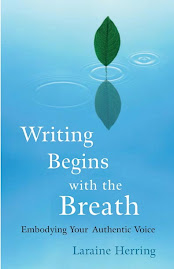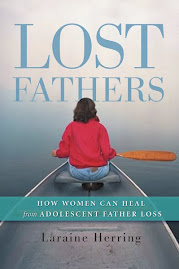Carole Maso: To create whole worlds through implication, suggestion, in a few bold strokes. Not to tyrranize with narrative. Allow a place for the reader to live, to dream. Poetry reveres silence. Fiction too often tries to fill it up.
Andrey Tarkovsky: The allotted function of art is not, as is often assumed, to put across ideas, to propagate thoughts, to serve as example. The aim of art is to prepare a person for death, to plough and harrow his soul, rendering it capable of turning to good.
I fear I am not able to return to work in the fall and teach fiction writing. It appears that I no longer believe in it as a fixed concept. I have no interest in Aristotle. In the causal relationships of plot. In the hidden motivations of characters. I have the least interest in a beginning, middle, and end. So little, in fact, that I am thinking of making my fiction students just write notes for the entire semester. Much can be learned from notes, and if they are thinking of writing a longer work of fiction, it would do them well to realize, really realize in the envelope of language, that the narrative structures they're accustomed to reading do very little to help them stretch the boundaries of what fiction can be. I try to assign stories and novels that they'd never pick up -- works that are unclassifiable, and often out of print. I want them to feel the possibility of a novel -- the way it tastes in their eyes when the plot doesn't follow the formula they've come to love.
I want to spend the whole semester on a single sentence.
A novel, like a yogi standing in tree pose, both roots and reaches. It must ground the reader somehow -- whether it be through image, sound, structure, repetition, tone, rhythm -- something must give it its footing. Then, it must reach. It must push itself out of the tangle of earth into the endless sky. Some of its branches are straight. Some are round. Some wrap around each other and some fall dead to the grass. The novel is all of it. How does one decide where a tree begins and where it ends? What part of the tree is more or less important?
A tree breathes.
What makes a novel breathe? It's the space within the words. The space between the lines and along the margins of the page. A novel breathes by what it does not say. That's the place where the reader lives, where the reader blows her memory onto the slithering snake of the sentence and makes it hiss. A novel cannot breathe if every causal relationship (but HOW did Billy get to the airport?) is addressed.
Then, there's the inevitable problem of time. Students have been so conditioned to believe that time is both linear and finite. If they begin a book in a time and place, they must proceed outward from that place, like an arrow shot from a bow. But a novel, in its grandest and most glorious potential, is not an arrow aimed at a target. It's the finger pointing to the moon. The space between the end of the finger and the moon holds the story, and within all that circular black space, anything can happen. A story, a defining moment in the life of a character, doesn't begin with the first word of the novel and end with the final one. The story we enter into can only be a story because of what has come before it, and the meaning of the story is determined by what comes after it. Why can we not play with time? Time plays with us.
I want to help my students layer their work without forgetting the primer at the base of the project. I want to help them find, organically, a structure for their work. I can't tell them how to structure their novels because their novels are not my dreams. They dream. They write. They breathe. Their novels should contain all these places. They should contain the mysterious, the random, the dreaded un-tied-up loose end that makes the rest of the dream utterly true.
Believe in stories. Believe in language. Believe in the crooked dance of breath and voice, of silence and creation. Dare to recognize the truth that is fiction, the fiction that is the essay, the poem that is the novel. Write something you have never seen before. Write something that you desire. What would your world look like if you peeled back your skin and walked through your downtown wearing blue veins, red, pumping organs, and bile. Dive into that for your fiction. Don't sculpt it into a supermodel. Don't airbrush its moles or its varicose veins. Don't make it look like every other book you've ever read. Learn standard English grammar so you can choose to subvert it. Learn the cliched Aristotelian narrative structure so you can open it up like a golf umbrella. Read the canon and the classics so you know what has been done. Read them critically so you know what is worth taking from them and what is worth discarding. Read the avant-garde literature -- the ones with no story and the ones with no characters. Read poetry -- volumes of it -- until language is always a dance. Then, let it all go and listen until the heartbeat of your novel is in your jugular. Listen until that first muddy, murky image floats like a half-filled helium balloon across your sky. What are the layers of that image? What is underneath the underneath of it?
Yes.
It is OK to have a one word paragraph. It is OK to use italics. It is OK to write in second person. It is OK to make the animals talk, or to make the characters mute. It is OK to put in a jazz riff or a recipe for chocolate chip cookies. Will it all work when it is finished? I don't know. But what doesn't work is trying to grow the same tree, the same height, the same distance from your house as every other author in your subdivision. Please, students, show me something more than beige. Show me something that takes my breath away -- not because you've just slaughtered a family of nine and spent ten pages on the bloody carpet -- but because you've dared to stretch the boundaries of language and this over-done, over-sold Anglo-Saxon journey story.
Yes.
It is OK to write a journey story.
But show me something that makes my arm hairs quiver. Show me something that makes be believe in the future of stories. Show me that you believe, with a zealot's fervor, that stories can change everything. Show me that you believe that make-believe is real. And do it with the splatter of letters against each other. Let me hear the sound of the "Z" as it drips down the white wall and collides with the "A" of the carpet. And let me hear it from the silence you've graciously left in your text, for me, your reader, to breathe.
Subscribe to:
Post Comments (Atom)











2 comments:
Oh my! Would that I could be your student. I'm using your blog as a text book. This post is so informative. I know (for myself) a good books lets me feel the sweat trickling down her forehead or shiver as a cold breeze sneaks up on him....and yet still allows tears to well up in my eyes because something in the book catches my heart and makes me relate.
Thank you so much! I'm grateful you are finding something of value in the blog. :-)
Post a Comment